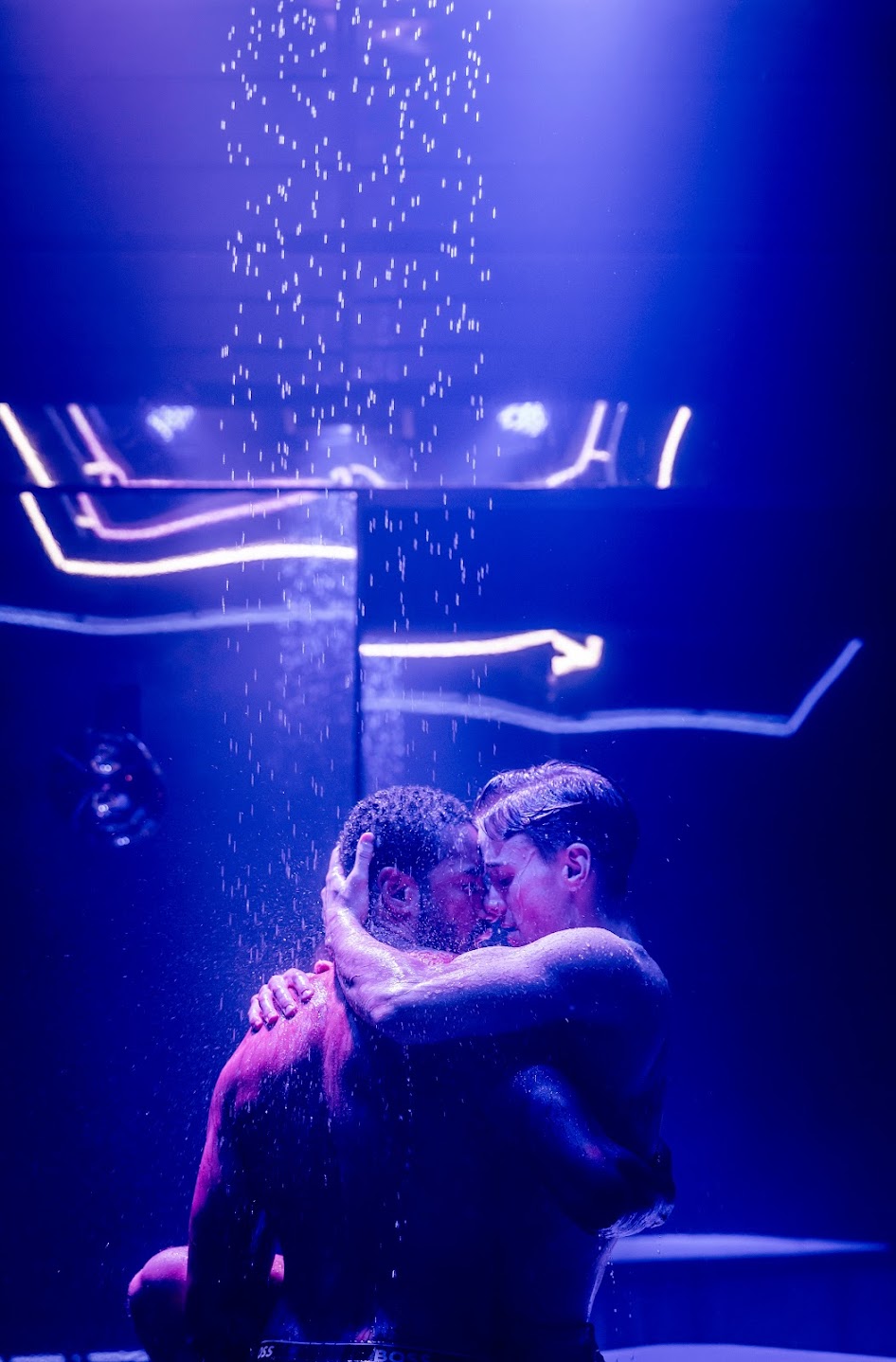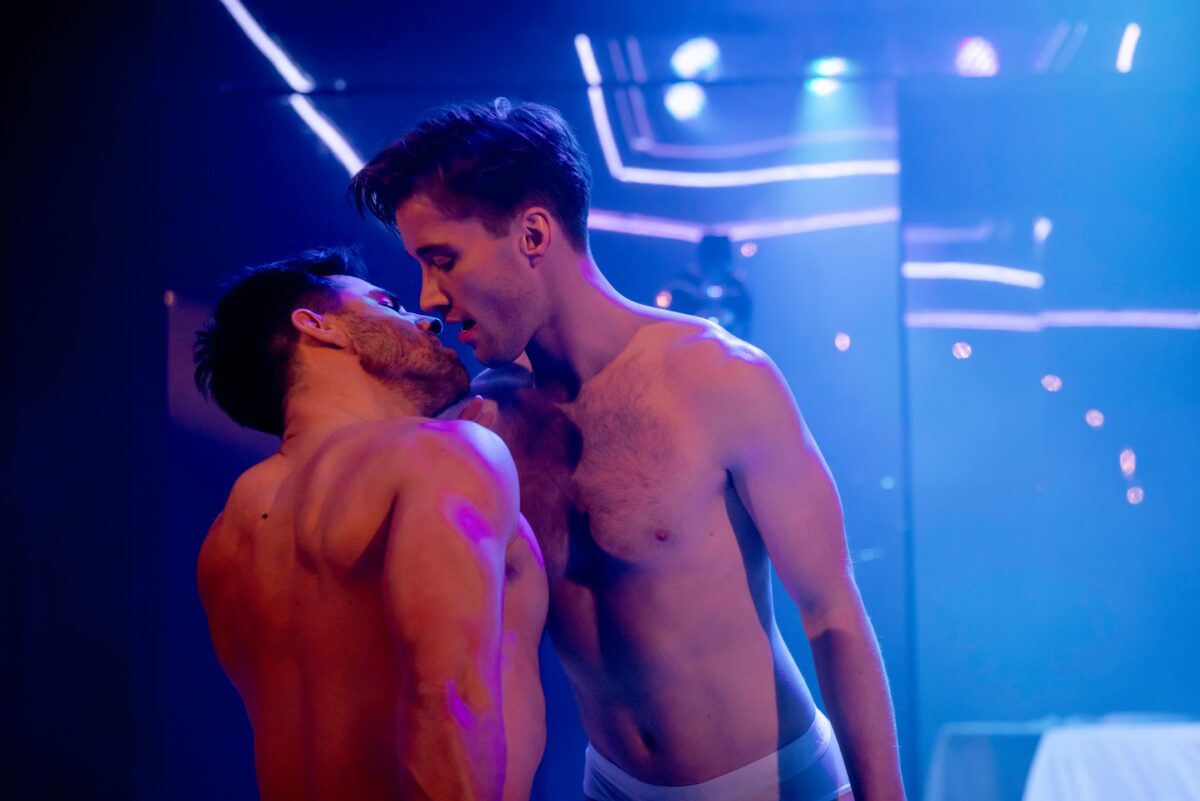
It’s Wednesday, Hump Day, and the irony is not lost on us as the first scene of Afterglow, written and directed by S. Asher Gelman, plunges headfirst down a rabbit hole of naked, balletic grinding. It’s January in London and 0 Celsius outside but the thermostat is turned up inside the Southwark Playhouse Borough in this pumping tale of polyamory.
Josh (Peter McPherson), a theatre director and his researcher husband Alex (Victor Hugo) appear breathlessly from under a damp duvet entangled with the 25-year-old Darius (James Nicholson), immediately establishing this as a cock tale for a thirsty gay audience. But the question is whether, along with all the log fire nudity, the story can carry a real emotional load?
 A relationship grows between Josh and Darius. It started out as a hookup to keep the spice in Josh and Alex’s relationship followed by a realisation, by Josh, that love need not be restricted to a particular number of people. This is not an easy process. Vulnerabilities rise to the surface, some predictable and petty and some deeply personal. But at its heart, the play is about what happens when someone who is polyamorous (open to love with multiple people) is in a relationship with people who are really only OK with the idea of multiple partners in sex rather than multiple partners in love.
A relationship grows between Josh and Darius. It started out as a hookup to keep the spice in Josh and Alex’s relationship followed by a realisation, by Josh, that love need not be restricted to a particular number of people. This is not an easy process. Vulnerabilities rise to the surface, some predictable and petty and some deeply personal. But at its heart, the play is about what happens when someone who is polyamorous (open to love with multiple people) is in a relationship with people who are really only OK with the idea of multiple partners in sex rather than multiple partners in love.
Each character contributes something unique. Josh is the gushing love puppy whose overflowing neediness for love radiates outwards. Alex is the guy who has more going on in life than sex and love. Darius is the slightly naive go-along-to-get-along guy who can’t quite figure out where he fits, but desperately wants to.
For a British audience, it’s important to note that the play has an American self-help, therapy-style language anchored in a very particular Hell’s Kitchen NYC gay sensibility. Distinctly prose over poetry. If that seems a little opaque then try to imagine people who can initiate sex without being drunk and talk about feelings without sarcasm, but after the sex worry about the laundry.
The performances are winning. Good looks are the low bar that each of the actors adeptly skips over, allowing them to focus on making the emotions rise to the situation. Yes, there is a lot of eye-candy nudity but in this case, it need not ruin your scrupulous reputation for artistic discernment. The actors and the dialogue deliver.
Some of the criticism of the play has been that it fails to trumpet the value of polyamory and its success within the queer repertoire. That misses the point of this particular piece. The polyamorous, above all else, are not an island. It’s a networked lifestyle. Its successes and failures are dependent on the sharing of values, not bodies. Afterglow successfully explores the delicacy of that space and the wounds of the people who fail to negotiate it

Queerguru Contributing Editor ANDREW HEBDEN is a MEDIA and cultural STUDIES graduate spending his career between London, Beijing, and NYC as an expert in media and social trends. As part of the expanding minimalist FIRE movement, he recently returned to the UK and lives in Soho. He devotes as much time as possible to the movies, theatre, and the gym. His favorite thing is to try something (anything) new every day”

